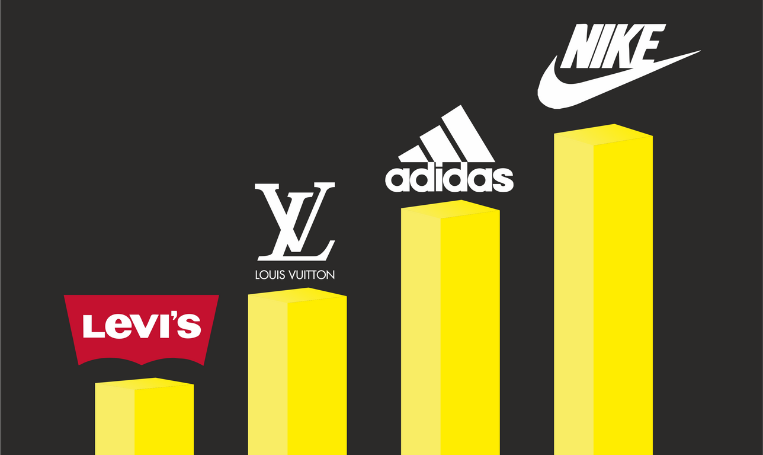The Importance of Brand Building in Today’s Market.
In today’s hyper-competitive and ever-evolving marketplace, brand building has become more crucial than ever before. Gone are the days when a great product or service alone could guarantee success. Today, consumers are bombarded with a plethora of options, and the key to standing out lies in establishing a strong, recognizable brand.
Trust and Credibility
A strong brand fosters trust. When customers recognize and trust your brand, they are more likely to choose your product or service over a competitor's. Trust isn't built overnight, but through consistent branding efforts, you can position your brand as a reliable choice in the minds of consumers.
Emotional Connection
Successful brands go beyond the functional benefits of their products or services; they create emotional connections with their audience. This emotional connection can be the difference between a one-time purchase and a lifelong customer. Brands like Apple and Nike have mastered this by aligning their products with their customers’ values and aspirations.
Differentiation in a Saturated Market
In a crowded market, a strong brand differentiates your business from competitors. It conveys what makes your offering unique, whether that’s quality, customer service, innovation, or a distinct company culture. Your brand is the narrative that sets you apart.
Customer Loyalty and Retention
A well-established brand encourages customer loyalty. When customers resonate with your brand values and experience consistent satisfaction, they become repeat buyers. This loyalty translates into long-term business success and advocacy, where customers promote your brand through word-of-mouth.
Influence on Purchasing Decisions
Branding influences purchasing decisions. Consumers often opt for brands they are familiar with, even if the competition offers similar products at a lower price. The perceived value of a well-known brand can justify a higher price point and can be a decisive factor in the buying process.
In today's market, where competition is fierce and consumer attention is fragmented, brand building is not just important—it’s essential. Businesses that invest in building strong brands will enjoy greater customer loyalty, higher credibility, and a significant competitive edge. As markets continue to evolve, the importance of a robust brand will only grow, making it the cornerstone of long-term business success.
The Evolution of Marketing Campaigns Since COVID-19.
The COVID-19 pandemic has drastically reshaped the global landscape, and marketing is no exception. As businesses scrambled to adapt to a new normal, marketing campaigns evolved rapidly to meet the changing needs, behaviors, and expectations of consumers. Since 2020, we’ve witnessed a profound transformation in how brands communicate and engage with their audiences.
Shift to Digital-first Strategies
The pandemic accelerated the digital transformation. With lockdowns and social distancing measures in place, consumers turned to online platforms for everything from shopping to socializing. Brands that had been slow to adopt digital strategies were forced to pivot quickly. Digital marketing, e-commerce, and social media campaigns became the primary channels for reaching consumers, replacing traditional methods like in-person events and print advertising.
Emphasis on Empathy and Authenticity
As people faced unprecedented challenges, the tone of marketing shifted. Consumers were no longer receptive to hard-sell tactics or superficial messaging. Instead, they sought authenticity and empathy. Brands that recognized this shift and responded with genuine, empathetic messaging resonated more deeply with their audiences. Campaigns that highlighted community support, well-being, and togetherness became more prevalent.
Rise of Influencer Marketing
With people spending more time online, the power of influencers grew. Influencer marketing saw a significant uptick as brands leveraged trusted voices to reach and engage consumers. Micro and nano influencers, in particular, gained traction, offering more niche and authentic connections with audiences. Influencers became a critical component of many brands' marketing strategies, providing relatable and trustworthy content.
Personalization and Data-driven Campaigns
The pandemic heightened the demand for personalized experiences. Consumers expected brands to understand their needs and preferences and to deliver relevant content and offers. Data-driven marketing became essential, with brands using data analytics to create targeted campaigns that addressed the specific needs of different customer segments. Personalization helped brands cut through the noise and deliver meaningful interactions.
Purpose-driven Marketing
COVID-19 also highlighted the importance of purpose-driven marketing. Consumers increasingly expected brands to stand for something beyond profit. Campaigns that focused on social responsibility, sustainability, and community impact resonated more with consumers. Brands that could authentically align their values with those of their customers gained trust and loyalty.
The marketing landscape has undergone a significant transformation since the onset of COVID-19. Brands have had to adapt to a more digital, empathetic, and purpose-driven approach to engage with consumers. As we move forward, these trends will continue to shape the future of marketing, with a focus on building deeper connections, leveraging data for personalization, and aligning with the values that matter most to consumers.
